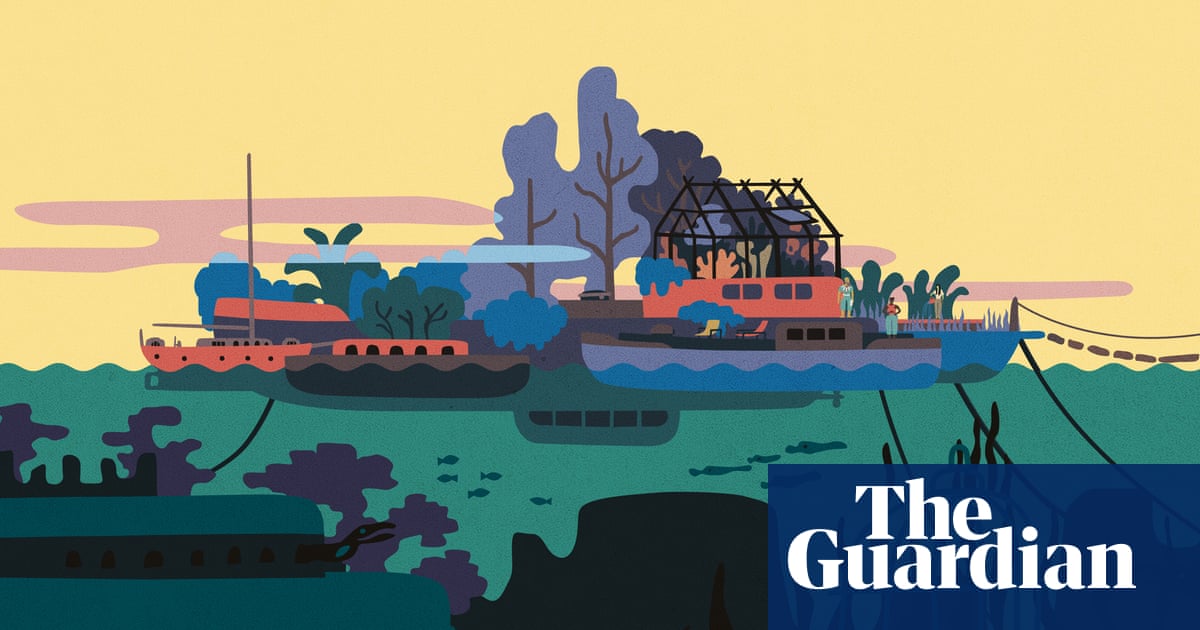
What does it mean to play a video game as an ensemble rather than a single character? How would it change your experience of people and plot? What if there was no single hero, or perhaps no heroes at all? As Hannah Nicklin, a creative director at independent studio Die Gute Fabrik explains, these are questions that narrative adventure Saltsea Chronicles is attempting to answer, all while telling its own charming story of misfit sailors voyaging across a flooded archipelago to uncover a conspiracy.
It’s a lofty pitch, and one Nicklin brings back down to earth with a comparison: “Star Trek: The Next Generation without the manifest destiny” – a description that hints at the game’s politics and its structure. “We take that ensemble cast, and we put you in the centre of a mystery that you are trying to uncover,” she says. “You’re on the ship and often get to choose which islands to visit. You choose who forms the expedition party and what they say when they get there.” All this plays out across gorgeously rendered environments, like a classic LucasArts adventure game of the 1990s with the visual the flair of a European arthouse cartoon. Logic puzzles make way for an emphasis on character, world-building, and exploration – the simple pleasures of getting to know a people and place.
Unlike other recent story-driven titles, Saltsea Chronicles does not grant the player limitless freedom. “You are not going to change the ending because the ending is uncovering the mystery,” she says. Rather, its narrative aims are more modest: “You’re going to shape how and what the characters experience along the way.” For players prone to Fomo (fear of missing out), there is a branching save system that allows them to replay previous chapters and make different decisions: “We give you the tools to not just explore time and space, but the possibility of space and story.”
Saltsea Chronicles is a monumental endeavour for the mostly remote studio. Nicklin estimates the script’s length sits between 350,000 and 450,000 words, and says that 10 writers (including herself) worked on the game from disciplines as varied as comics, children’s books, and experimental theatre. The team includes Arthur C Clarke award-winning poet Harry Josephine Giles and story lead Charlene Putney whose credits include RPG behemoths Divinity: Original Sin 2 and Baldur’s Gate 3. Nicklin makes clear that Saltsea Chronicles is a big “step up in storytelling ambition” from the studio’s previous, warmly received adventure game, Mutazione. The sheer amount of written content demanded by the ensemble cast required its own ensemble-sized writers’ room.
The aim is to create a rich interpersonal drama (one mechanic is called Issues, essentially “relationship quests” focusing on the tensions of your crew) but it’s an optimistic take on the future as opposed to yet another story of dystopia or apocalypse. “There are no cops, there are no cop-likes. All of these different communities will have different ways of considering and exercising justice,” Nicklin says. “There’s also no state, but there are ideas of collectivism.” The creative director relays the ritual one island community has for gender. “It’s a gender trinary system rather than a gender binary system,” she explains. “The idea being that everyone is they/them until they come of age and then they get to choose their gender.”
Amid this gently radical vision of the future, you meet a cast of characters each with their own foibles, hang-ups, and quirks. There is Molpe, a young mother whose partner has gone missing, Jayanthan, a charismatic swashbuckler, and a cat called Lady Flufflebutt. Each has an important place in the narrative Nicklin describes as “sociological” rather than “psychological.” “In sociological storytelling, it’s about society, community, and the individual – how all three of those levels forge each other,” she says. “I wanted that to be at the heart of how we think about storytelling.”
Saltsea Chronicles is out in late 2023 for PC, PlayStation 5, and Nintendo Switch.












